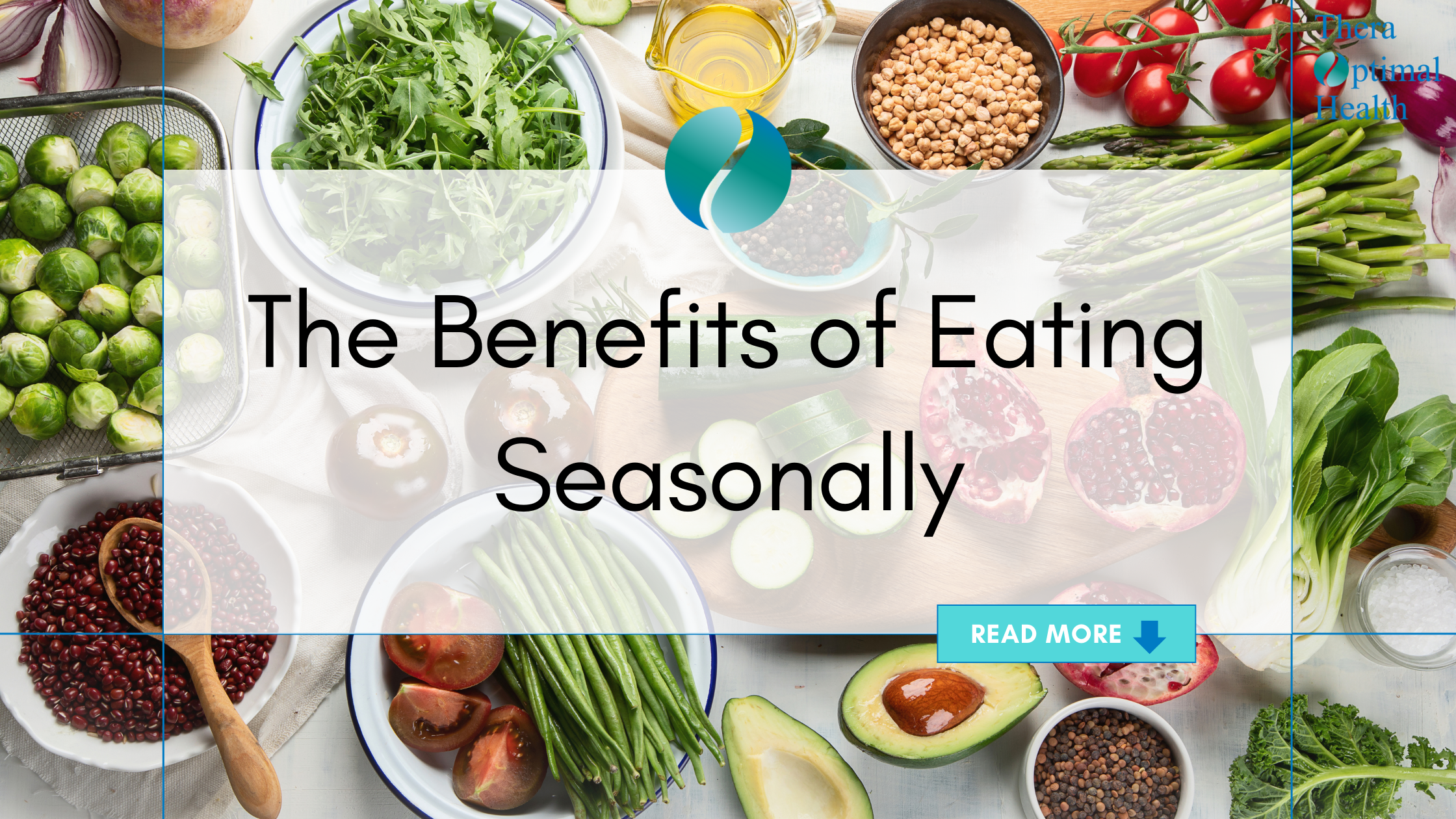In a world where you can find strawberries in December and pumpkins in May, it might seem like the seasons no longer dictate our produce choices. Yet, a surprising fact is that fruits and vegetables provide the most nutrients when grown in their natural seasons, making them healthier and fresher. Health enthusiasts, environmentalists, and culinary aficionados are embracing seasonal eating because it enhances flavor, reduces our carbon footprint, and strengthens our connection to the environment and local communities. Let’s explore why aligning our diets with nature’s rhythms is both fulfilling and beneficial for our health.
What Does Eating Seasonally Mean?

Eating seasonally means enjoying fruits and vegetables that are naturally ripe and harvested during their specific growing seasons. In summer, for example, you’ll find markets filled with vibrant tomatoes, juicy peaches, and sweet corn. As fall arrives, apples, pumpkins, and root vegetables take center stage. Unlike imported or out-of-season produce that often requires artificial ripening, seasonal foods are picked at their peak, making them more flavorful and nutrient-dense.[1] Seasonal availability varies by region, so visiting local farmers' markets or checking seasonal produce guides can reveal what's fresh near you.
Choosing seasonal foods adds variety to your diet with a rotation of tastes, textures, and nutrients throughout the year. This approach ensures you’re consuming the freshest produce and fosters a deeper appreciation for natural food cycles.
As you explore the various foods each season has to offer, understanding the fundamental principles of nutrition can help you make even healthier choices. In Module 2 of our Foundations Program, we delve into the science of nutrient-rich foods, helping you not only select the best seasonal produce but also understand its benefits on a deeper level.Health Benefits of Seasonal Eating

Eating seasonally provides a range of health benefits that align with your body’s needs throughout the year. Here’s why incorporating seasonal produce into your diet is so beneficial:
- Nutrient Density: Seasonal produce, harvested at peak ripeness, retains more nutrients, including fiber and prebiotics, which support better digestion and improved gut health.
- Enhanced Digestion: Naturally ripened fruits and vegetables are fresher and contain higher levels of enzymes that aid in digestion, promoting a healthier gut.
- Better Flavor and Reduced Additives: The rich flavors of seasonal produce reduce the need for added salts, sugars, or other flavorings, helping you maintain a healthier diet overall.
- Dietary Variety: Seasonal eating encourages a diverse and engaging diet, preventing meal monotony and supporting long-term healthy eating habits.
- Blood Sugar Balance: Certain seasonal foods, like root vegetables available in cooler months, provide complex carbohydrates that help maintain stable blood sugar levels.
- Immune Support: Seasonal produce provides essential nutrients at the right time, like hydrating fruits and greens in summer to keep you cool and vitamin C-rich citrus in winter for immune support.
By eating seasonally, you’re nourishing your body with fresher, nutrient-dense foods that naturally complement your health year-round.
Understanding the health benefits of eating seasonally is essential, but learning how to choose and prepare nutrient-rich foods can elevate your overall well-being. In our Foundations Program’s Nutrition module, you'll explore how diet can be a powerful tool for promoting health, and you’ll discover what foods your body needs for peak vitality. You’ll also learn how to fuel your body for better energy and focus, make smarter food choices, and embrace a balanced diet. Additionally, this module covers the importance of key supplements for optimal nutrition and introduces practices like yoga and meditation to enhance digestion, helping you achieve a holistic approach to wellness.Economic and Environmental Benefits
Eating seasonally benefits not only your health but also the economy and the environment.[2] Seasonal produce is generally more abundant, which can lower prices. Fruits and vegetables in season are easier and cheaper to harvest, process, and transport, making them more affordable than out-of-season produce, which often requires costly imports or special storage.[3]
Choosing seasonal foods also supports local economies. When you buy from farmers' markets or community-supported agriculture (CSA) programs, you directly support local farmers, sustaining agricultural jobs and strengthening your local economy. Opting for locally grown seasonal produce reduces the demand for imported foods, which often travel long distances and contribute to greenhouse gas emissions.
From an environmental standpoint, seasonal eating reduces your carbon footprint. Seasonal foods require less energy for production and transport, as they grow naturally without extensive artificial heating or lighting. By choosing in-season produce, you help lower the energy consumption linked to food production, contributing to a more sustainable food system.
Tips for Eating Seasonally

Here are a few practical tips to help you embrace seasonal eating:
- Visit Local Farmers' Markets: Find the freshest seasonal produce and connect directly with growers to learn about their current harvests.
- Use Seasonal Produce Guides and Apps: Digital resources can help you stay updated on what’s in season in your area, making meal planning with fresh ingredients easier.
- Learn to Preserve: Extend the life of seasonal produce through canning, freezing, drying, or fermenting. This reduces waste and lets you enjoy seasonal flavors year-round.
- Challenge Yourself with Seasonal Recipes: Try new recipes featuring seasonal ingredients each week to diversify your diet and improve your cooking skills.
- Grow Your Own: If you have the space, growing your fruits and vegetables can be a rewarding way to ensure fresh, seasonal produce right at your doorstep.
By aligning your diet with nature's cycles, you not only enjoy fresher, tastier, and more nutritious foods but also contribute to a more sustainable and locally-focused food system. Embrace the rhythm of the seasons and discover the rich flavors and benefits that come with each changing month.
If you're ready to take charge of your health and make informed nutritional choices, the Foundations Program is your gateway to a healthier, more vibrant life! This flexible, 10-module journey allows you to dive into wellness at your own pace, with lifetime access to a treasure trove of expert-led videos and interactive workbooks. You'll explore topics like building sustainable habits, optimizing your nutrition, mastering stress management, and discovering powerful practices like yoga, breathwork, and cutting-edge wellness technologies.
Start today and take the first step towards living your healthiest, most energized life!
Click here to learn more.
Resources:
[1] Edwards-Jones, Gareth. “Does eating local food reduce the environmental impact of food production and enhance consumer health?.” The Proceedings of the Nutrition Society vol. 69,4 (2010): 582-91. doi:10.1017/S0029665110002004
[2] Vargas, Alexandre Maia et al. “The Role of Local Seasonal Foods in Enhancing Sustainable Food Consumption: A Systematic Literature Review.” Foods (Basel, Switzerland) vol. 10,9 2206. 17 Sep. 2021, doi:10.3390/foods10092206
[3] Macdiarmid, Jennie I. “Seasonality and dietary requirements: will eating seasonal food contribute to health and environmental sustainability?.” The Proceedings of the Nutrition Society vol. 73,3 (2014): 368-75. doi:10.1017/S0029665113003753





